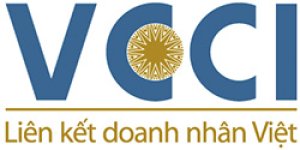EVFTA - Foundation for Consolidated Vietnam-EU Relations
The COVID-19 pandemic is having both short-term and long-term effects on the Vietnamese economy. In this context, the official entry into force of the EU - Vietnam Free Trade Agreement (EVFTA) will have a significant impact on the Vietnamese economy and its enterprises, especially small and medium-sized ones. Dr. Vu Tien Loc, President of the Vietnam Chamber of Commerce and Industry (VCCI), gives an exclusive interview on this issue on the sidelines of the workshop, “EVFTA Agreement and Vietnam's Integration into Global Value Chains in a Post-COVID-19 World”, recently hosted by the Delegation of the European Commission (EC), VCCI and the European Chamber of Commerce and Industry (EuroCham) in Hanoi.
Vietnam is a highly open economy which largely depends on foreign markets for inputs for production and for output consumption. The COVID-19 pandemic disrupted supply chains and shrank global market demand, and that immediately affected Vietnam's manufacturing industries which are reliant on imported inputs and on exported outputs.

In that context, EVFTA is opening up rare opportunities for Vietnam. I understand that, in the current context of a very stagnant market, many producers of agricultural products, apparel, footwear and electronics in Vietnam have now started to receive new orders and new opportunities from the EU. Thus, this pact can be said to be a pathway for Vietnam to address existing problems caused by the disruption of global supply chains and also a long-term solution for it to take a deeper part in higher value segments of supply chains. Vietnamese manufacturers are well aware that EVFTA imposes very strict requirements for the ratio of local inputs. Therefore, Vietnam will have the opportunity to promote the development of supporting industries and purchase more input materials from the EU. In return, that will also strengthen cooperation between Vietnam and the EU.
To utilize benefits brought by EVFTA, in the coming time, Vietnam needs to have a strategy and amend the legal system to match its commitments. More importantly, there must be amendments, institutional reforms, and even higher requirements to create a more favorable business environment and fairer competition to enhance business competitiveness. Only much enhanced corporate competitiveness will provide Vietnam with a solid foundation to take a deeper part in global supply chains and promote FDI in the coming time.
Vietnam faces difficulties in localization, how will EVFTA help solve this matter?
The first difficulty for Vietnam in fostering the development of supporting industries is that the country has not introduced enough reasonable incentives and policies, especially tools to support domestic enterprises. The second is the shortage of high-quality, well-trained human resources - the most important factor for the development of supporting technologies.
Besides, infrastructure quality that helps reduce costs is also very important. Therefore, to help supporting industries to enter global supply chains, Vietnam must have consistent actions on all three spearheads.
Vietnam and the EU have a long-term relationship in the manufacturing industry, as well as inputs for manufacturing industries. The EU has helped Vietnam a lot in training technical workers for mechanical engineering industries. Motivated by the COVID-19 pandemic and the EVFTA Agreement, the EU hopes to step up and expand the scale and scope of its cooperation programs. In that way, the EU will support the Vietnamese economy to strengthen the development of supporting industries and more effectively join global supply chains with EU economies.
Does EVFTA create competition between businesses of both sides and what is the measure of success in EVFTA enforcement?
Vietnam has the opportunity to penetrate the EU market, and EU businesses of different scales and sizes have the opportunity to make inroads into the Vietnamese market as well. However, Vietnam and the EU are two complementary markets, rather than face-to-face competitors. Although the EU has agricultural products, it does not compete directly with Vietnam's tropical agricultural products. Europe has a very long winter while Vietnam is in a tropical climate where plants grow all year round. This creates an opportunity, a very good niche for Vietnam to enter the EU market.
I think that the most important measure of success in the EVFTA enforcement for the EU and Vietnam is the participation of small and medium enterprises and family businesses in this process. I expect a prospect that “A family in Europe can order fresh flowers still wet with the dew in Da Lat, and Vietnamese families can order apples from a farm in Europe” with the help of e-commerce.
With those favorable cooperation policies between Vietnam and the EU, I do believe that Vietnam’s agricultural products, apparels, footwear and electronics products can likely enter the EU market. Enterprises must innovate, have product, service, marketing and technology strategies and enhance their competitiveness to capture EVFTA benefits. I want to emphasize that EVFTA is the foundation to strengthen Vietnam - EU relations, coupled with both challenges and opportunities. The matter is how to create a more transparent and favorable business environment.
Source: Vietnam Business Forum









